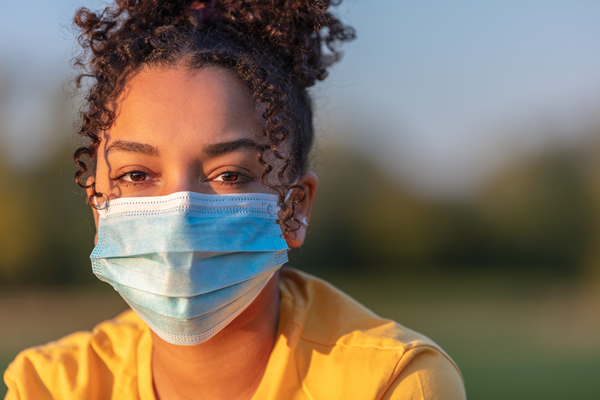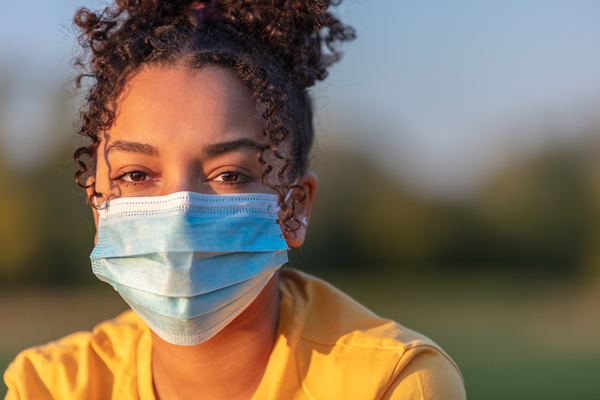

The mental health of many has suffered amid the coronavirus pandemic, with rates of depression, anxiety, and other mental illnesses steadily rising since March 2020. Youth, especially those who identify as LGBTQ, are being hit especially hard by these manifestations.
The Trevor Project’s 2021 Youth Mental Health National Survey found that 72 percent of LGBTQ+ people between the ages of 13 and 24 experienced symptoms of generalized anxiety disorder and 62 percent experience symptoms of major depressive disorder — a steep increase since the 2020 survey. This uptick can be attributed to the lack of support that two out of every three respondents to the 2021 survey experience in their homes.
Due to the pandemic and resulting restrictions placed on social gatherings, LGBTQ youth are unable to participate in in-person activities where their identities are affirmed, and forced to endure misgendering and other discriminatory situations within their homes that are confirmed to increase feelings of loneliness, depression, and anxiety. Online crisis lines, LGBTQ organizations that offer online events for youth, and other resources that support young LGBTQ people are especially vital to their mental health during this time when school-wide Gender and Sexuality Alliances and counseling aren’t as widely accessible.
Before the pandemic, LGBTQ youth were already suffering from mental illness at extremely high rates. The Trevor Project’s 2019 Youth Mental Health National Survey reported that 39 percent of respondents had seriously considered suicide, more than double the national statistic encompassing both LGBTQ and cisgender, heterosexual youth found in a CDC study the same year.
The culture surrounding many LGBTQ students in their homes and schools contributes to their alarming rates of mental illness.
The lack of positive representation of LGBTQ identities in books, on screen, and in classrooms leads youth to believe that there is no hope to ever have successful lives as openly LGBTQ people.
The LGBTQ characters that young people do have to look up to are often unnecessarily killed off when the “bury your gays” trope is employed, or their storylines center around their LGBTQ identity and disregard any other part of their humanity; tricking them into thinking that they’re nothing beyond their sexual orientation or gender identity and can’t be functioning and productive members of their communities because of it.
According to the Human Rights Campaign’s 2020 State Equality Index, only two U.S states have laws addressing discrimination against students based on sexual orientation, and only one state has legislated protections for transgender and gender-nonconforming students. Six states specifically restrict the inclusion of LGBTQ topics in curricula.
The institutionalized exclusion of LGBTQ students from school curriculum further alienates them in spaces where they should feel comfortable and accepted for who they are and helps to facilitate a breeding ground for further discrimination.
Students internalize the stereotypes, tropes, and other ways in which homophobia and transphobia permeate society and are poisoned with beliefs that they’re abnormal, perverted, and disgusting. Over time, this brainwashing eats away at the psyche of youth as they grow and leads to the high rates of mental health issues in LGBTQ youth.
Straight and cisgender students are also affected by these failings and in turn, affect the mental health of their LGBTQ counterparts. They absorb the same falsehoods about LGBTQ people and their identities, and lash out at those who they’ve been taught are lesser than them, including their friends and classmates. The internal struggle that manifests in LGBTQ youth as well as external attacks from their peers results in the unique mental health crisis they face.
LGBTQ youth have also been affected by the pandemic at a higher capacity than other groups. A 2017 study by Chapin Hall at the University of Chicago found that LGBTQ youth are over 100 percent more likely to report homelessness than straight and cisgender youth.
Many LGBTQ people, especially members of the transgender community, avoid seeing doctors or mental health professionals due to the absence of protections for LGBTQ people and hostile experiences with medical personnel.
Without access to spaces where they can interact with other LGBTQ youth, shelters in which they feel safe, LGBTQ affirming doctors, and policies in place that protect LGBTQ workers and patients, LGBTQ youth are struggling mentally in high volume that increased during the pandemic.
The lives and futures of LGBTQ youth are not expendable, and it’s time that they stop being treated as such. Legislated protections for LGBTQ students and resources that are available to youth are necessary to combat the daunting rates of mental illness within the young LGBTQ community.
Maeve Korengold is a freelance journalist and student ambassador for Safe Space NOVA.